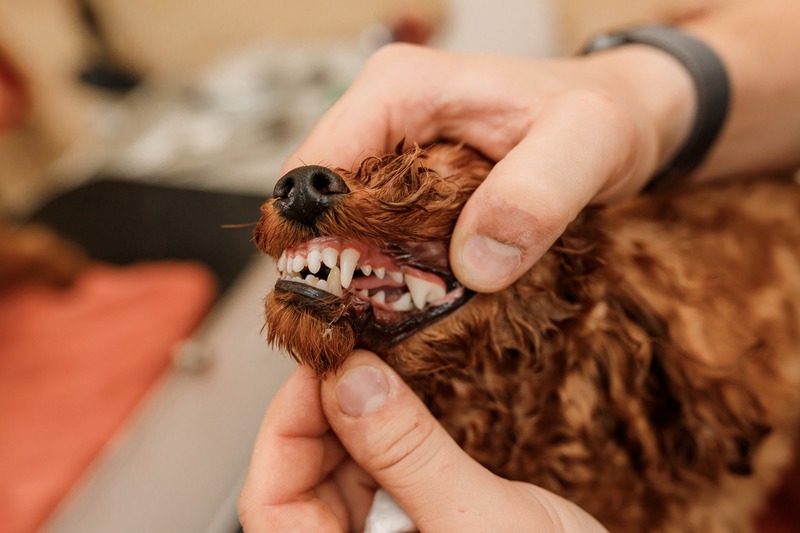If you’re a pet parent, you know those furry family members mean the world to you and ensuring their health is a top priority. But did you know that dental issues in your pet can affect more than just their mouth? Let’s explore the ripple effect oral health has on your pet’s overall well-being and how you can play a crucial role in keeping them healthy and happy.
Dental Issues and Their Effect on Pet Health
Dental health in pets is more important than many realize. It’s not just about bad breath or yellow teeth; it’s about how oral hygiene can impact their entire body. Bacteria from dental disease can spread through the bloodstream and potentially harm vital organs. It’s similar to how we understand our dental care – except, of course, pets can’t brush their teeth themselves.
1. The Spread of Infection
When pets develop dental issues like gingivitis or periodontitis, the bacteria causing these infections can enter the bloodstream. Once there, they can reach the heart, liver, and kidneys, causing significant health problems that can be both costly and heartbreaking.
2. Chronic Pain and Discomfort
Imagine having a toothache and not being able to tell anyone about it. That’s often the case for pets suffering from dental problems. Chronic oral pain can lead to stress, behavioral changes, and a decline in overall life quality for your four-legged companions.
3. Systemic Health Impact
The consequences of poor dental health in pets extend beyond localized issues. Systemic health problems may arise as a result of untreated dental conditions. For instance, infections originating from the oral cavity can impact the immune system, making pets more susceptible to other illnesses. A focus on dental care becomes a preventive measure for maintaining overall health.
4. Nutritional Concerns
Dental problems can hinder a pet’s ability to eat comfortably. Painful teeth or gum issues may lead to a reluctance to chew, impacting their nutritional intake. Over time, this can result in malnutrition and related health issues. Prioritizing dental health ensures that pets can maintain a proper and balanced diet essential for their overall well-being.
5. Behavioral Changes
Chronic dental pain can manifest in altered behavior. Pets may become irritable, anxious, or aggressive due to the discomfort they experience. Understanding the link between oral health and behavior emphasizes the role of dental care in promoting not just physical well-being but also mental and emotional balance in our animal companions.
Recognizing Dental Health Issues in Pets
Detecting dental problems early is crucial, and as a pet owner, you’re on the front lines. There are signs you can keep an eye out for that may indicate your pet is suffering from oral health issues.
-
Foul breath that’s more than just “dog breath”
-
Difficulty eating or loss of appetite
-
Bleeding gums or drooling more than usual
-
Visible tartar on teeth or teeth that seem loose
Part of being proactive about your pet’s dental health involves regular visits to the vet. During a regular dog & cat checkup, a vet will examine your pet’s teeth and gums to spot any potential issues early on. These checkups are vital in preventing diseases and catching problems that you might not notice at home.
Comprehensive Veterinary Dental Care
Getting ahead of pet dental problems means embracing a preventive approach. Good oral hygiene at home, combined with professional care, can make all the difference. Here’s where the concept of comprehensive pet dental care comes into play – a multifaceted approach to keeping your pet’s mouth as healthy as its tail is waggy.
At-home Dental Care Strategies
-
Brushing your pet’s teeth regularly with pet-friendly toothpaste
-
Providing dental chews that help clean teeth naturally
-
Using water additives for dental health
-
Feeding a diet that promotes dental hygiene
Professional Dental Cleaning and Surgery
While at-home care is vital, some dental issues require the aid of a vet. Professional dental cleanings can remove plaque and tartar buildup that you can’t tackle at home. Sometimes, dental surgery is necessary to address severe problems. This might seem daunting, but it’s a step that can vastly enhance your pet’s quality of life.
Gearing Up for Dental Surgery
If your pet needs dental surgery, it’s normal to feel nervous. However, vet clinics today are well-equipped, and professionals are skilled at ensuring your pet’s comfort and safety throughout the procedure. Here’s what you can do to prepare your furry buddy and yourself for the process.
Preparing Your Pet for Surgery
-
Follow pre-surgery instructions from your vet closely
-
Ensure your pet fasts if required before anesthesia
-
Set up a quiet and comfortable recovery area in your home
Recovery and Postoperative Care
After surgery, it’s critical to follow your vet’s instructions for care. Your pet will likely need rest, medications, and maybe a temporary special diet. Attentive postoperative care will help your pet get back on their paws in no time.
How About Pet Vaccination and Pet Health?
Vaccination is one of the cornerstones of keeping any pet healthy. While it might not seem directly linked to dental health, it’s all part of a broader picture of preventive care. For example, a visit to Pico Rivera Animal Hospital could ensure your pet is up to date on all their vaccinations, contributing to their overall immunity and wellness – which also plays a part in how well they’ll handle any dental issues.
Wrapping Up
Understanding the importance of dental care in your pet’s life cannot be overstated. It’s not just about teeth – it’s about their overall health and happiness. You have the power to make a difference with regular checkups, a keen eye for symptoms, and a commitment to oral hygiene. Remember, your efforts in maintaining dental health can lead to a more enjoyable and longer life for your pet. So, let’s keep our pets smiling brightly because their health truly starts with their teeth.

